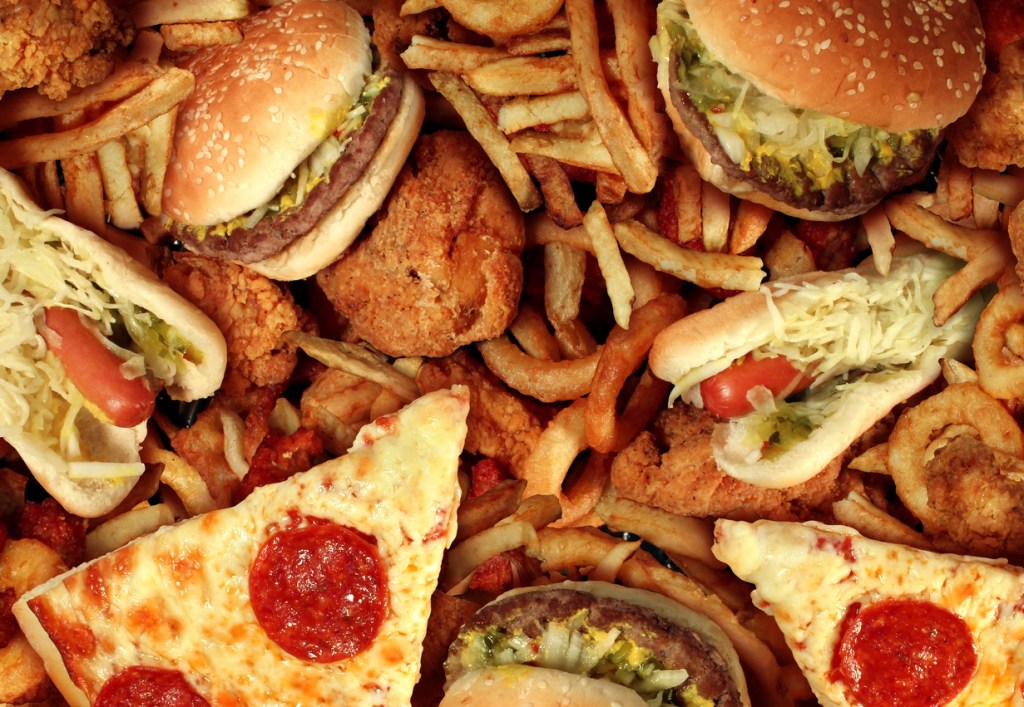
iStockphoto / wildpixel
- Dr Chris van Tulleken went on a 30-day ultra processed food diet to see what effect it would have on his body
- The normally healthy doctor said he felt ’10 years older’ and his body transformation was shocking
- Read more cool articles here
Dr Chris van Tulleken is a British doctor and TV presenter. He’s a regular on BBC1 where he gives out medical and health advice but generally in a way that’s more beneficial than what we’re used to seeing on TV here in the USA. He recently underwent a 30-day diet of eating 80% ultra-processed food to track what would happen.
Defining ‘processed food’ is tricky. Making a jam/jelly from strawberries turns it into processed food. But this is all referring to ultra-processed food with added sugar and other artificial ingredients. Increasing ultra-processed foods in your diet is an automatic increase in added sugars. And vice versa, reducing those foods leads to a reduction in added sugar.
This normally healthy doctor switched from a 20-30% ultra-processed diet to a diet consisting of 80% ultra-processed foods. He’d later say he “felt 10 years older” and the side-by-side body transformation is astounding.
Comparatively speaking, there hasn’t been a ton of research on the health effects of ultra-processed foods in diets. It’s a relatively new phenomenon compared to what civilization had been eating for centuries. Dr. Chris van Tulleken’s goal here was to test what effect the diet would have on him. That also makes this entirely anecdotal. You or I might attempt this and the results could be completely different.
So how’d it go after 30 days? Here’s what he had to say on BBC.com: “After the month was over, Chris reported poor sleep, heart burn, unhappy feelings, anxiety, sluggishness, and a low libido. He also had piles from constipation. “I felt ten years older”, he says, but “didn’t realise it was all [because of] the food until I stopped eating the diet”.”
Reminds me of myself after I’ve been eating like trash for days, weeks, or months. Basically half of last year before I got back into shape after putting on weight when the gyms closed.
One thing that’s wild is they ran brain scans and processed foods triggered the same ‘automatic behavior’ as addictive substances like cigarettes. This BBC excerpt freaked me out more than a little: “Brain activity scans showed the areas of Chris’ brain responsible for reward had linked up with the areas that drive repetitive, automatic behavior. “Eating ultra-processed food became something my brain simply tells me to do, without me even wanting it.”
He found he was craving pizza, chocolate, fries, and other foods like that.
Dieting in the sense of sticking to specific foods has never been my thing. I’ve traditionally opted scale back my caloric intake and ramp up my exercise. And one habit-breaker I’ve leaned on was anytime I craved a snack I’d chug a glass of water because I rarely drink enough water in a given day. So if you ever find yourself craving ultra-processed snacks the water trick might help. I did lose 40 pounds two years ago doing that…
Americans have been steadily eating more and more ultra processed foods in their diet for decades. A 2019 study of 230,156 products found that 71% (including bread, snacks, salad dressings) were classified as ultra-processed. Digging further, amongst the top 25 packaged food manufacturers (by volume) a whopping 86% of the products were ultra-processed.
As is the case with everything in life, moderation is key. Splurging every now and then on ultra-processed foods won’t wreck your body. Making a habit of eating those every single day is not advisable. Just do everything in moderation.